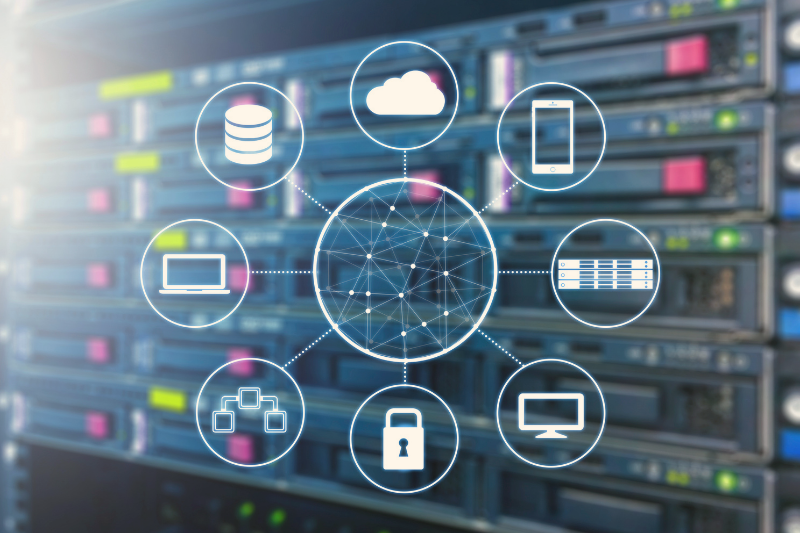Cloud computing is driving a major transformation in the healthcare sector by enabling the digitalization of data management, patient care services, and operational processes. Hospitals, insurance companies, research centers, and healthcare providers are developing more secure, efficient, and accessible systems through cloud-based solutions.
The Importance of Cloud Computing in Healthcare
The healthcare sector generates large volumes of sensitive data, and ensuring that this data is secure, scalable, and accessible is a critical requirement. Hospitals, clinics, laboratories, and insurance companies are using cloud computing technologies to accurately store and share patient information and medical records. Cloud solutions improve the speed, safety, and efficiency of healthcare services, enhancing patient satisfaction and simplifying the workflows of healthcare professionals.
Digitalized Healthcare Services
Traditional healthcare systems are undergoing a significant transformation as they move from paper-based to digital record systems. Cloud computing is one of the most critical components of this digital transformation process.
With Electronic Health Records (EHR – EMR), patients’ entire medical histories can be securely stored digitally and shared quickly between different healthcare organizations.
Remote patient monitoring allows for the continuous tracking of health data, especially for individuals with chronic conditions, enabling early diagnosis and intervention.
Online healthcare services and telemedicine applications allow patients to consult with doctors via video calls without having to physically visit a hospital. This is particularly beneficial for rural areas or patients with mobility issues.
AI and automation-supported healthcare services increase the speed and accuracy of diagnoses, thereby improving the effectiveness of healthcare systems.
Fast and Secure Access to Data
Cloud computing addresses one of the biggest challenges in the healthcare sector: slow and fragmented data access. In traditional systems, patient information is stored across different systems, making it time-consuming and error-prone for healthcare professionals to access.
Real-time data access allows doctors and medical professionals to view a patient’s medical history from anywhere, helping them make quicker and more accurate decisions, especially in emergencies.
Mobile health applications enable patients to access and monitor their own health data. For instance, diabetic patients can track glucose levels, and heart patients can monitor blood pressure through mobile devices.
Inter-hospital data sharing ensures that doctors can access patient histories even when patients visit different healthcare institutions. This is especially advantageous during patient referrals and second opinion processes.
Cloud-based storage solutions are more secure and efficient than traditional server infrastructures for storing large data sets. Health data is encrypted and protected with advanced security measures against unauthorized access.
Improving the Quality of Patient Care
Improving patient care in healthcare is not only about developing better treatment methods but also about optimizing processes and making services more accessible. Cloud computing, combined with big data analytics, artificial intelligence, and automation technologies, contributes to this improvement.
Big data analytics enables the identification of health risks by deeply analyzing patient data. For example, genetic data can be used to determine a patient’s predisposition to certain diseases and take preventive measures accordingly.
AI-powered diagnostic systems assist doctors in making more accurate diagnoses. In cancer screenings, for example, AI can analyze radiological images to detect potential tumors and provide recommendations to doctors.
Personalized treatment methods allow for the development of tailored care plans based on individual patient data. This approach is especially effective in oncology and genetic treatments.
Automation and robot-assisted healthcare services reduce error rates in surgeries and lab analyses, improving patient safety. Surgical robots and automated diagnostic systems enable healthcare professionals to work more efficiently.
Streamlining hospital operations reduces the workload on healthcare workers and improves the management of patient care processes. For example, managing patient appointments through cloud-based systems reduces wait times and optimizes resource usage.
Cloud computing offers revolutionary innovations in healthcare, providing faster, more secure, and more effective solutions for both patients and healthcare professionals. As it improves the quality of healthcare services, this technology is set to become one of the fundamental components of healthcare systems in the future.
Applications of Cloud Computing in Healthcare
Electronic Health Records (EHR – EMR)
Electronic health records store patients’ full medical histories in a centralized system, making it easier for doctors and healthcare professionals to share information.
Secure storage and sharing of patient data
Data integration between hospitals, clinics, and laboratories
Faster diagnosis and treatment based on medical history
Telemedicine and Remote Patient Monitoring
Cloud-based telemedicine solutions allow patients to consult doctors remotely and enable real-time health monitoring.
Online doctor appointments and video consultations
Real-time patient monitoring with wearables (e.g., smartwatches, blood pressure monitors)
Chronic disease management and remote care services
Disease Analysis with Big Data and Artificial Intelligence
Cloud computing supports faster and more accurate decision-making with big data analytics and AI-driven diagnostics.
Early detection of conditions like cancer, diabetes, and heart disease
Identifying trends to develop preventive health policies
Personalized treatment planning
Pharmaceutical and Clinical Research
Pharmaceutical companies and biotech firms analyze vast datasets to develop new treatments. Cloud computing accelerates this process.
Use of big data and AI in clinical trials
Secure sharing of research data among labs
Faster time-to-market for new medications
Insurance and Healthcare Management Solutions
Health insurers use cloud technologies to store and analyze client data securely.
Optimizing healthcare spending
Faster insurance claim processing
Risk analysis and policy development based on patient data
Data Security and Compliance in Healthcare
Compliance with KVKK, GDPR, and HIPAA
Healthcare data must be stored according to strict regulatory standards:
KVKK (Turkey): Prevents unauthorized processing of personal health data
GDPR (EU): Enforces strict data protection regulations
HIPAA (USA): Sets privacy and security standards for health data
Encryption and Data Protection
Cloud systems ensure security through encryption and access control:
End-to-end encryption for data in transit and at rest
Multi-factor authentication to prevent unauthorized access
Firewalls and threat detection systems for cybersecurity
Disaster Recovery and Backup Solutions
Disaster recovery strategies ensure critical data is not lost in emergencies:
Fast recovery mechanisms in case of cyberattacks or system failures
Redundant backups across multiple data centers
Real-time synchronization and secure cloud archiving
Benefits and Challenges of Cloud Computing in Healthcare
Benefits
Cost savings: Cloud infrastructure reduces the need for physical servers
Improved patient care: Faster access to data leads to quicker diagnoses
Scalability: Cloud systems can grow with expanding healthcare needs
Challenges
Data security concerns: Patient data must be protected from breaches
Regulatory compliance: Strict adherence to KVKK, GDPR, and HIPAA is essential
Technology transition: Adopting cloud solutions can take time and training
Synchron & Cloud Solutions for Healthcare
As the digital transformation of healthcare accelerates, Synchron helps hospitals, labs, and medical providers optimize their data management, patient services, and operational efficiency with advanced cloud computing solutions.
We provide regulatory-compliant solutions aligned with KVKK, GDPR, and HIPAA standards, including secure data encryption, robust backup systems, and advanced access controls.
From electronic health records and telemedicine to big data analytics and AI diagnostics, Synchron offers scalable cloud infrastructure tailored for the healthcare industry. Our high-performance solutions also support remote patient monitoring, pharmaceutical research, and hospital operations.
Synchron is shaping the future of healthcare with secure, scalable, and cost-effective cloud technologies. Reach out to us today to start your journey toward a smarter and safer healthcare future.



